What About All That Buzz?: Newbery Committee Inside Insights
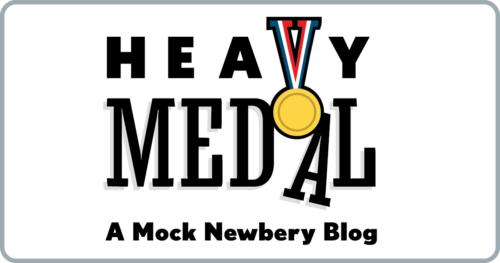
Here’s another post where we share some behind-the-scenes information about what it’s like to be on the Newbery Committee. Earlier we wrote about the challenges of managing several hundred books; another post looked at issues of confidentiality and conflict of interest. Today it’s all about buzz: how things like rave reviews, publicity campaigns, word of mouth, and even mock Newbery blogs might (or might not) play roles in the year-long efforts of committee members.
STEVEN: In my years I tried to pretty much avoid buzz until I had read a book. I wouldn’t read a review, or even a book jacket, first. But I do think things like starred reviews and word of mouth would sometimes lead me to pick up a book that might have been lower down on my pile. Emily, how much did you track what others were saying about the hottest titles?
ADVERTISEMENT
ADVERTISEMENT
EMILY: I was all about the buzz because I was terrified of missing something. So I looked at all the lists and blogs (my Newbery year is when I got introduced to Heavy Medal wadddup) . I tried not to read the OPINIONS too much but definitely wanted to NOT MISS ANYTHING.
STEVEN: Agree: every tool you can find to expand your net is useful. Although I have to admit, I enjoyed finding a book that wasn’t getting much attention and deciding to champion it. Usually (maybe always?) unsuccessfully though.
EMILY: I’d argue that reading opinions (after you read the book) could help you make sure you haven’t missed anything (pros or cons about the book). Thanks for that Heavy Medal! I also thought it was important to read credible blogs from POC to make sure I wasn’t missing anything from their represented groups.
STEVEN: Good point. At least during my years (2010, 2013) I know ALSC was working hard to bring more diversity into award committee membership, but still had a long way to go. And having more people weigh in can increase our knowledge beyond diversity: sharing relevant information about science, history, etc., that you hope will be covered by the 15 committee members, but they can’t cover everything.
EMILY: I liked looking at authors’ interviews and blogs to see if they could give me any more insight into a title. Not sure if that was the best idea in retrospect?
STEVEN: I can see some value in that one, but decided against it for myself. Early in my first year I went to a talk at a bookstore and the author read from an eligible title, which I had read and decided not to nominate. Sitting there and hearing the author’s just-right reading of the text, I thought: “What was I thinking, this is brilliant!” Kind of caught up in the moment. But actually, when I later went back to the book and my notes, I realized that my concerns were still valid, even though I now heard that author’s voice in my head as I read. After that, though my rule was: book = yes; author = no.
EMILY: I also wanted to pick good titles for my 3rd to 6th grade book club to read. I wanted to hear opinions from the kids to see what real children thought about it. I got a lot of good insight from the kids and was able to bring that into discussions.
STEVEN: I had Mock Newbery groups at a couple of schools during one of my years and also found it helpful. Not so much for evaluating individual books, because the group only read six or seven I think. But talking to kids directly about specific books really gets you focused on what the Newbery Criteria describe as “respect for children’s understandings, abilities, and appreciations.” It’s easy to get lost in adult-to-adult conversations about “what kids will like.”
STEVEN: The two winners from my years weren’t huge surprises. WHEN YOU REACH ME (2010) was just a second novel, but it had pretty strong buzz. And many people have told me they were rooting for THE ONE AND ONLY IVAN (2013) all year long. But Emily, I believe your medal book was more unexpected?
EMILY: My winner MERCI SUAREZ CHANGES GEARS (2019) didn’t even make the Heavy Medal booklist! However it was the practice discussion title and I definitely read that to sew pros and cons. Whenever people say something like, “I was surprised Merci won,” or “Did Merci have it all?” I remember what a wise former chair (sorry not Steven) told me to say: “reread it again with the Newbery in mind.”
ADVERTISEMENT
ADVERTISEMENT
STEVEN: Great answer. It can also work for the “Why didn’t this book win instead?” question. Although as a committee member, you can’t really share the specific concerns your group might have identified.
EMILY: I remember being at an event the year Matthew Cordell won the Caldecott. I heard he was convinced Dan Santat would beat him out. The Caldecott chair just smiled to herself. That helped me realize, no matter the buzz, no matter what people think- the committee is really giving such a thorough and deep analysis that matters more than anything else.
STEVEN: That’s really the key. No one’s reading books and thinking about them in the same way as those 15 committee members. Input from outside the reader and the committee can be important…but only to the extent that it makes its way into the reader’s understanding of a book and the committee discussion and ballot.
EMILY: If anything I would say all this talk about buzz is the first time I really want to spill Newbery secrets. Is my 50 years up yet? LOL. Please ask me some questions I can actually answer in the comments!
Filed under: Newbery Experience
About Steven Engelfried
Steven Engelfried was the Library Services Manager at the Wilsonville Public Library in Oregon until he retired in 2022 after 35 years as a full-time librarian. He served on the 2010 Newbery committee, chaired the 2013 Newbery Committee, and also served on the 2002 Caldecott committee. You can reach him at sengelfried@yahoo.com.
ADVERTISEMENT
ADVERTISEMENT
SLJ Blog Network
Name That LEGO Book Cover! (#53)
Review of the Day: Being Home by Traci Sorell, ill. Michaela Goade
Exclusive: Vol. 2 of The Weirn Books Is Coming in October | News
Fighting Public School Book Bans with the Civil Rights Act
North Texas Teen Book Festival 2024 Recap
ADVERTISEMENT



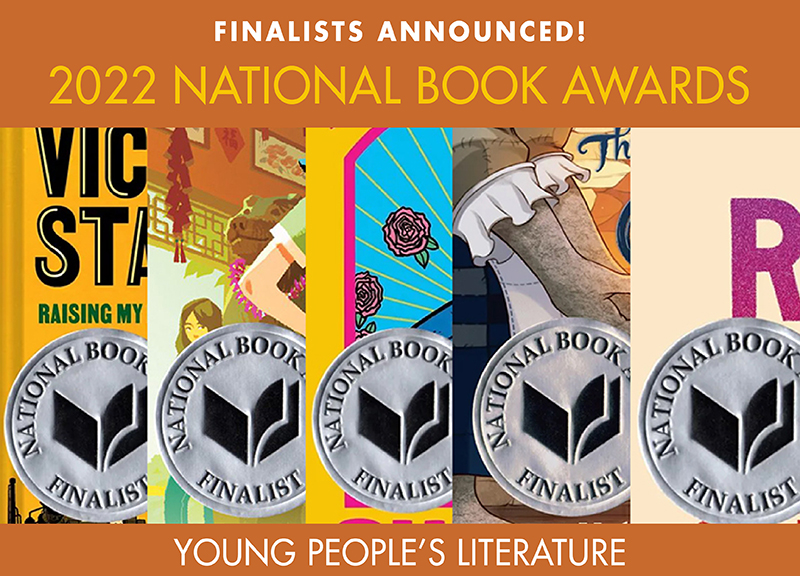
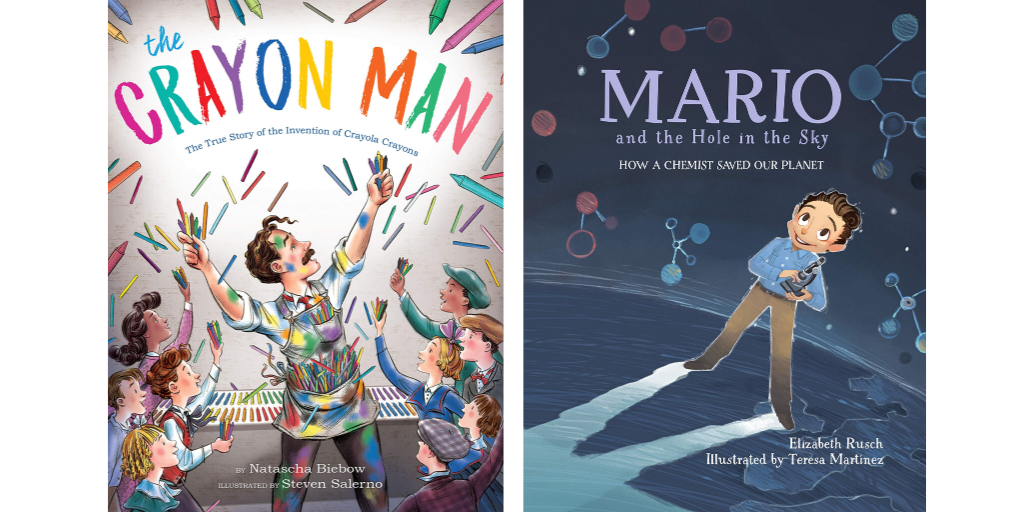
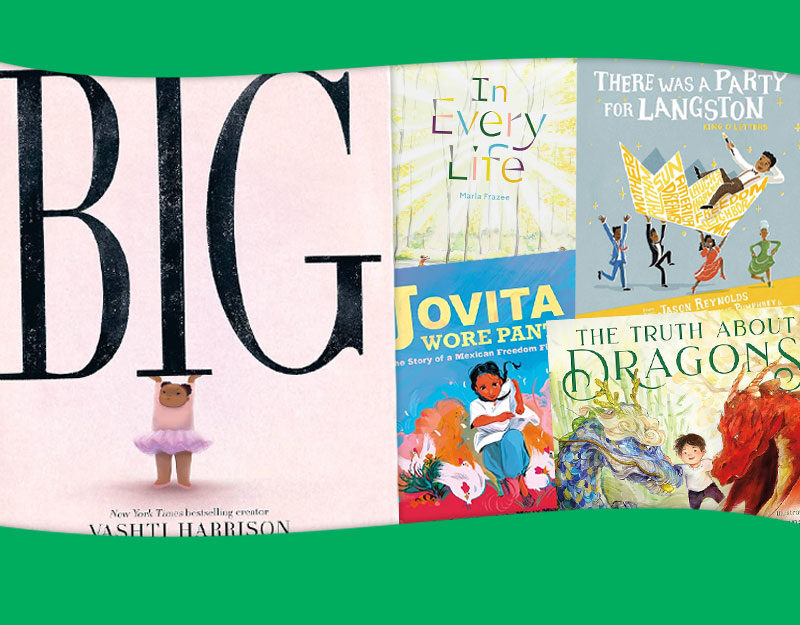
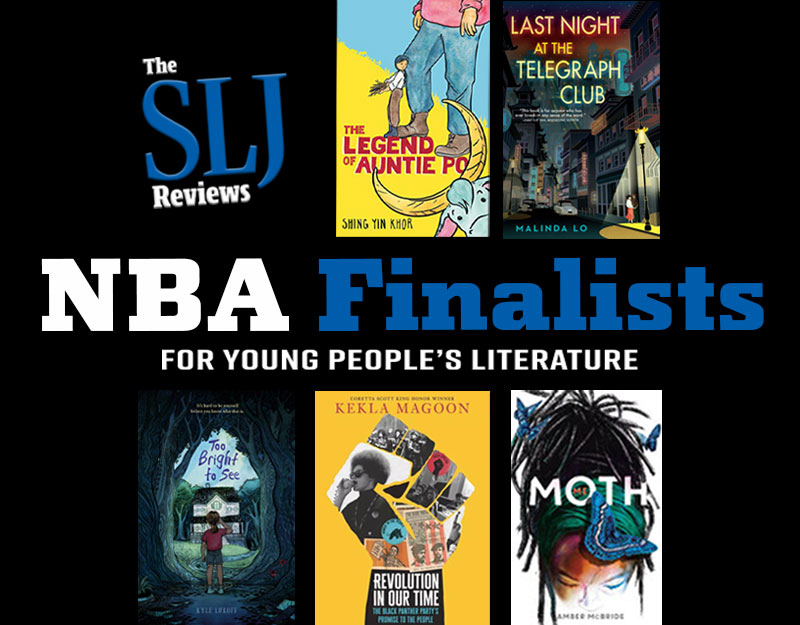

It was 2014. I hadn’t been following Heavy Medal for very long when someone’s off-hand comment suddenly made me realize, a Newbery Committee member might be reading! (The comment wasn’t from a committee member, obviously, but it was someone who had knowledge of the way the world works.) Since then, I do confess that, after making an argument that I think is kind of clever, I have fantasized that a committee member might see it and steal/use it. There have also been multiple times when it was clear authors were reading this blog – unfortunately I don’t always remember that when making negative comments…
Sometimes I just wish that more comments could be made about the discussions so I would know what I missed. My reading of a book did not stand out and then it wins. Or I really thought a book would win and it doesn’t get anything. I know you are not allowed to speak about it, but I just wish I knew what some of the specific moments of wow this book did this really well, or this author which I love did not make it because this book was not quite good enough to make it. Sometimes it feels like it would be nice just to know what else made it to the discussion at all.
I share that curiosity with Cherylynn, especially about my favorite books that don’t show up. A few years ago I’M JUST NO GOOD AT RHYMING by Chris Harris was my personal pick , and it even won one of our Heavy Medal Mock Ballots. For all we know, it could have been the fifth book on the committee’s ballot (there were three Honors that year)….or it might not have received a single nomination. (The author has a new collection coming out next July, so maybe next year…)
From the other side, I’ve talked to people about their favorites from my years, and in most cases I could tell them exactly how close (or far) the book was from being selected, and maybe even the specific reasons why it fell short….but I can’t.
Steven, Emily, and other committee members,
Are you able to say anything about the press release process? Because that is one opportunity for the Committee to communicate why the winner won. The Newbery Manual (link below) explicitly says, “The committee’s reasons for selection of the medalist and honor books will be given by the Chair or a designate who prepares the press release or the announcement articles.” (38) Later on the page, there seems to be lots of flexibility how this is done: “The Chair sometimes creates the press release. At other times, the Chair designates a committee member (selected prior to the meeting) to do the writing. The Chair may also divide responsibilities among committee members.” Are you allowed to say how this was handled in your years?
https://www.ala.org/alsc/sites/ala.org.alsc/files/content/awardsgrants/bookmedia/newberymedal/newberycommittee/newbery_manual_9Oct2009.pdf
Also, I am a little more hesitant to ask about this, but it does tie into what Steven just said. The manual does appear to give some permission to talk about the books? On the same page as the press release guidance (37-38), it says, “the following items are not for public discussion at any time prior to, during, or following the selection of the awards: 1. Reasons (other than your own) given by individual committee members for nominating, supporting, or removing a book from consideration.” What’s with that parenthetical “(other than your own)”? It seems clear in reality no committee member divulges that information. I guess it would be weird to not allow a professional to give any personal opinion about any book from a given year, so this might be to allow for that? So that Steven would not get in trouble for ever saying, for example, “I like (or dislike) Wonder for these reasons….”?
About the press release, I feel okay about sharing from my experiences. As Leonard points out, the Manual gives some flexibility to the committee. All three of my committees (2 Newbery + 1 Caldecott) used the same general approach (as best as I can remember). A small group of members was assigned to each book. As a group, they drafted the portion for that title. Those went to the chair, who had responsibility for final editing and submitting to the ALSC office. In at least a couple of those years, not every member was involved in this. Some had more experience in that kind of writing; also writing anything as a group gets harder the more people you involve. It also may have happened that one or two people helped the chair with the final editing.
I think I can also say this: that’s a really hard job. It’s only a few sentences and you all know these books inside and out, but you still want to get it just right. It’s also challenging, after all the discussion and finally the climactic decision, to rev yourself up again with more hard thinking about words.
I think one of my chairs had the foresight to ask members to do rough drafts of the apparent top contenders prior to the discussion meeting, so we would have some good words to start with. I think I forgot to do that when my turn as chair came, but it was a good strategy.
You’re right about the leeway for talking about the books, Leonard. I can share my opinions about Wonder, and I have done that in conversation, I’m sure.
I could also be more specific about how I think the book met the standards delineated in the Newbery Terms and Criteria. I try to steer clear of that and keep things more general. Though it seems allowable, I’m apprehensive that a more detailed, criteria-based evaluation might be seen to represent the whole committee’s, even though I would always preface it with something like: “I can’t share anything about committee discussions, or even let you know if a particular book was discussed, but I can let you know some of my own thoughts about the book…”
That’s just the way I choose to approach it though. Others may have different thoughts…
One way to gain insight is to read lots of reviews on Goodreads. Of course, you won’t find reviews by committee members, but the committee is made up of mostly ordinary librarians and there are TONS of ordinary librarians writing reviews.